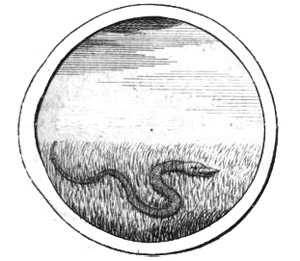
Don't Tread on Me! Noli me calcare!
If what one's hearing in the news is true, the old slogan "Don't tread on me!" is gaining popularity once more. It should be noted that this motto has a somewhat lesser known Latin counterpart "Noli me calcare!" Although I cannot immediately locate an adequate proof, it appears as if the origin of the phrase, as accompanied with a picture of a snake may be somewhere in those numerous volumes of pictorial devices and symbols, so popular in the 16-18 centuries. There are similar devices "Noli me tangere", "Do not touch me" accompanied with depictions of a rather fierce looking dog or bush of nettles (a common Europian weed that causes severe burns). There is also an emblem of an elephant stepping on a snake. The motto that goes with this device is "Non impune feres" - "You won't go unpunished." Everything points to the fact that when the phrase "Don't tread on me!" was first used as a symbol of the Colonies' independent spirit it most likely came from some collection of pictorial mottos.
But here is somethine else that I find quite interesting. "Noli me calcare" can also be found in Augustine. He uses it in a very witty way, suggesting that sometimes those who intend to honor us by embraces and osculations are at the same time stepping on our feet. It seems that the exact phrase Augustine uses "Nolo honorem tuum, noli me calcare" (basically, "I do not wish to be honored by you if you step on me") is a much more suitable expression of one's dissatisfaction with a duly elected government, as opposed to warding off a foreign power (wich is the case with the snake symbol).
Of course, Augustine's own point has more to do with theology. Here is the entire passage in a rather loose 19th century translation:
Carry your charity through the whole earth if you wish to love Christ, because the members of Christ are spread abroad on the face of the earth. If you care for a party you are divided, and if you are divided you do not belong to the Body; if you belong not to the Body neither are you under the one Head. What does it profit you to believe and blaspheme? You adore Him in His Head and blaspheme Him in His Body. He loves His Body. If you have cut yourself off from His Body the Head remains united to its Body. That Head cries to you from above, In vain you honour Me, in vain you honour Me. It is as if somebody were to kiss you on your cheek and to stamp upon your feet, and perhaps to make you feel his heavy boot whilst he was holding you in his embrace. Would you not cry out at his words of flattery, and say, " What are you doing, man? you are treading on me." You would not say, " You are treading on my head," for he was embracing your cheek. The head would cry out for its wounded members more than for itself, because it was being honoured whilst they were being ill treated.